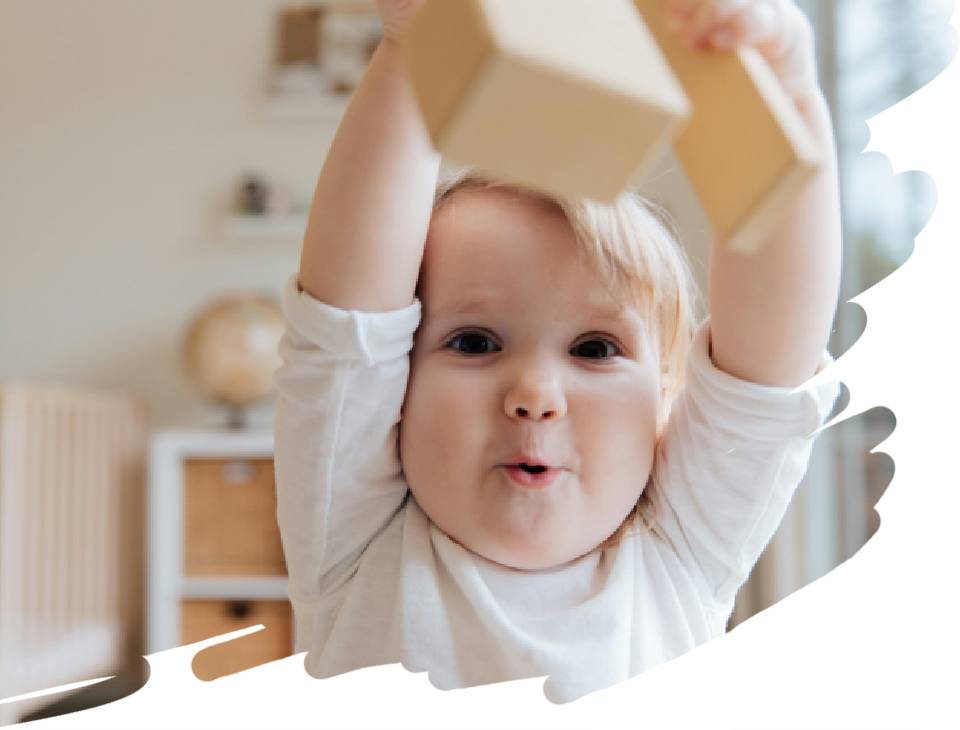“Remember This!” – A Learning Program with Activities to Develop Working Memory
For children aged 1–7
The materials for activities designed to develop working memory were created in collaboration with psychologist Olga Luptova and educational technologist Marii Maamägi, drawing on both practical experience in child development and scientific research in the field of working memory.
This material is aimed at parents, teachers, and support specialists who want to support the development of children aged 1–7 through playful and research-based activities.
The collection will help you understand what working memory is and why it is essential for a child’s focus, learning, communication, and development of everyday skills.
From the material you will find:
• Simple and practical activities that can be done at home.
• Age-based ideas with explanations on what and why to develop at each stage.
• Games and exercises that develop both visual and verbal memory.
• Suggestions on how to support a child’s attention, ability to follow instructions, and memorization skills.
Activities are divided by age groups (1–7 years), and for each age, the material includes:
• Goals the child could reach through regular practice.
• Games and exercises based on four thematic areas:
• How does memory work? – playful experiments and explanations of how memory functions (starting from age 4).
• Supporting visual thinking – remembering images and visuals, noticing changes.
• Developing verbal working memory – remembering and using words, sentences, and instructions.
• Memorization skills – strategies for linking and reinforcing information.
The development of working memory is influenced by several factors – sleep, physical activity, stress, and screen time – and this material helps you support your child consciously in everyday life. This is not just a collection of memory exercises but a tool for developing your child’s cognitive skills. If you want your child to improve their concentration, retain information, and manage their own actions, this material is a valuable investment in their future.
“Make Friends with Feelings” Learning Program
For children aged 3–7
“MAKE FRIENDS WITH FEELINGS” is a unique learning program developed by Väike Päike’s psychologist and educational technologist. It is designed to enhance the emotional knowledge and skills of children aged 3–7, helping them better regulate, understand, and manage their emotions.
The “Make Friends with Feelings” program consists of activities that support, develop, and expand children’s understanding of emotions and their ability to regulate, interpret, and manage them.
The program’s activities are divided into four main subtopics:
1. Such a Vast World of Emotions: These activities aim to broaden children’s understanding of emotions and how they arise, while developing their ability to recognize and interpret both their own and others’ emotions.
2. Emotions Are Part of Our Lives: The focus of these activities is to help children develop an understanding of emotional situations.
3. What to Do with Your Feelings?: These activities support the development of emotional self-regulation. Various strategies for managing emotions are introduced and practiced.
4. Super Regulators: These activities are designed to develop children’s impulse control and inhibitory processes. Children learn how to analyse and manage their reactions, as well as how to plan and adjust their actions based on instructions and the context.
Learning objectives of the program:
• Expand children’s understanding of emotions and how they arise.
• Develop children’s empathy and communication skills.
• Enhance children’s ability to recognize and express emotions.
• Improve children’s understanding of emotional situations.
• Strengthen children’s ability to manage their emotions.
• Develop children’s skills in analysing and controlling their own reactions.
• Support children’s ability to plan and adapt their actions based on instructions and context.
“Make Friends with Yourself” Learning Program
For children aged 1.5–3
“MAKE FRIENDS WITH YOURSELF” is a learning program that develops self-management skills in children aged 1.5–3. The program consists of activities that support the development of children’s self-regulation abilities, enhance their emotional vocabulary, and promote the growth of their skills in understanding emotions.
The program’s activities are divided into three thematic blocks:
1. Super Regulators: These activities help develop children’s impulse control skills and inhibitory processes. The first set of activities is intended for the whole group. Teachers work together with the children to establish group agreements using age-appropriate tools (e.g. pictures, sand timers, music, etc.). The second set of activities focuses on the intentional development of children’s self-management skills. These activities help children learn to analyse and control their own reactions. They also teach children how to plan and adapt their actions based on guidance and situational context.
2. Emotion Regulation: The goal of these activities is to expand children’s emotional vocabulary and develop their ability to understand both their own and others’ emotions.
3. Peace of Mind: These activities support children’s mindfulness, help them cope with stress, and foster the development of self-awareness skills.
Learning Objectives of the Program:
• Develop children’s impulse control and inhibitory processes.
• Enhance the ability to analyse their own reactions, control them, and plan and adjust their actions based on instructions and context.
• Foster children’s empathy and communication skills.
• Expand children’s understanding of their own and others’ emotions.
• Enrich children’s emotional vocabulary.
• Strengthen children’s ability to understand emotions.
• Improve children’s concentration skills.
Research Results
Children participated in the “Make Friends with Feelings” program and gained many new insights and skills. We are pleased to report that statistical data also confirms improvements in the children’s abilities!
The program leaders, Olga Luptova and Marii Maamägi, conducted a study comparing the results of children who participated in the program with those of a control group. The findings revealed that the “Make Friends with Feelings” program had a positive impact on children’s understanding of emotions, their ability to cope with negative feelings, and their self-control. This clearly demonstrates that the work done has real and meaningful benefits!

